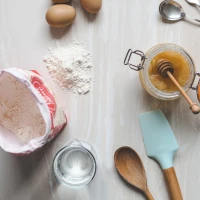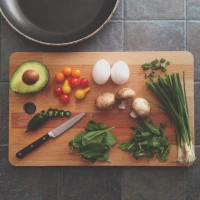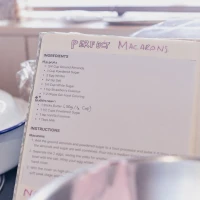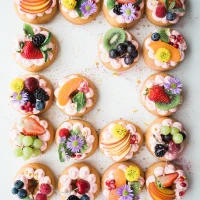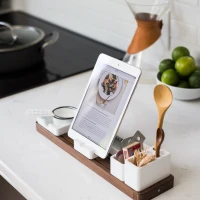Are you tired of the same old dishes and flavors in your kitchen? Do you want to take your cooking skills to the next level? Look no further! In this article, we will explore 13+ cooking tips and techniques that will elevate your culinary skills and help you create delicious and impressive dishes. Whether you are a beginner or a seasoned cook, these tips will provide valuable insights and enhance your cooking experience. So, put on your apron and let’s get started!
1. Experiment with Different Spices and Herbs
Spices and herbs are the key to adding depth and complexity to your dishes. Experiment with different combinations to discover unique flavor profiles. Some popular spices to try include cumin, paprika, turmeric, and cinnamon. Fresh herbs like basil, cilantro, rosemary, and thyme can also transform a dish. Use them generously to enhance the taste of your meals.
2. Master the Art of Seasoning
Seasoning is the foundation of great cooking. Too often, dishes fall flat because they lack proper seasoning allure beauty box review may 2023. Salt and pepper are the most basic seasonings, but don’t be afraid to go beyond them. Enhance the flavors of your dishes by using various spices, herbs, and condiments. Taste as you go and adjust the seasoning accordingly. Remember, a well-seasoned dish can make all the difference.
3. Learn Different Cooking Techniques
Mastering a variety of cooking techniques will expand your repertoire and allow you to create a wide range of dishes. Some essential techniques to learn include sautéing, roasting, grilling, braising, and baking. Each technique offers unique flavors and textures, so take the time to practice and perfect them. With these techniques in your culinary arsenal, you can create restaurant-quality meals at home.
4. Invest in High-Quality Cookware
Good cookware is essential for achieving great results in the kitchen. Invest in high-quality pots, pans, and knives that will last a lifetime. Stainless steel and cast iron are excellent choices for cookware, as they distribute heat evenly and offer durability. A sharp chef’s knife is also a must-have tool for every cook. When you have reliable cookware, your dishes will turn out better and cooking will be a more enjoyable experience.
5. Understand Cooking Temperatures
Understanding cooking temperatures is crucial for achieving desired results in your dishes. Different foods require different temperatures to achieve the best taste and texture. For example, delicate fish is best cooked at lower temperatures, while a well-marbled steak benefits from high heat. Invest in a good food thermometer to ensure your meats, poultry, and seafood are cooked to perfection.
6. Practice Mise en Place
Mise en place, a French term meaning “everything in its place,” is a practice that refers to prepping and organizing ingredients before cooking. This technique allows you to work efficiently and ensures that you have everything you need within easy reach. Chop vegetables, measure ingredients, and gather utensils before you start cooking. Mise en place helps prevent any last-minute scrambling and allows you to focus on the cooking process.
7. Use Fresh and High-Quality Ingredients
The quality of ingredients can make or break a dish. Whenever possible, choose fresh, seasonal, and high-quality ingredients. From fruits and vegetables to meats and dairy products, using the best ingredients will elevate your cooking to new heights. Visit local farmers’ markets to find the freshest produce and explore specialty stores for unique ingredients. Your taste buds will thank you!
8. Develop Knife Skills
Having good knife skills is fundamental to efficient and safe cooking. Practice proper knife techniques such as slicing, dicing, and mincing. Invest in a sharp chef’s knife and learn how to hold it correctly. With improved knife skills, you will work more efficiently and achieve consistent results in your cooking.
9. Experiment with Different Cooking Oils
Cooking oils play an important role in flavoring and cooking techniques. Experiment with different oils such as olive oil, coconut oil, sesame oil, and avocado oil to enhance the taste of your dishes. Each oil has its own distinct flavor and smoke point, which affects its suitability for various cooking methods. Be adventurous and try different oils to diversify your culinary creations.
10. Practice Proper Food Handling and Safety
Food safety is paramount in the kitchen to prevent foodborne illnesses. Wash your hands thoroughly before and after handling food. Keep raw meats separate from other ingredients to avoid cross-contamination. Cook foods to their recommended internal temperatures to kill any harmful bacteria. By practicing proper food handling and safety, you can enjoy your meals with peace of mind.
11. Explore Different Cuisines
Expand your culinary horizons by exploring different cuisines from around the world. Each culture has its own unique flavors and techniques. Experiment with spices, ingredients, and cooking methods used in international cuisines. Try your hand at making Thai curries, Italian pasta dishes, Indian biryanis, or Mexican salsas. Exploring different cuisines will broaden your palate and give you a deeper understanding of flavors.
12. Plate Your Dishes Creatively
Presentation is an important aspect of culinary arts. Take the time to plate your dishes creatively and make them visually appealing. Use garnishes, sauces, and colorful ingredients to add vibrancy to your plate. Experiment with different plating styles to showcase your culinary creations. Remember, we eat with our eyes first, so make your dishes as visually appealing as they are delicious.
13. Learn from the Experts
Continuous learning is key to improving your culinary skills. Read cookbooks, watch cooking shows, and follow expert chefs for inspiration and new ideas. Attend cooking classes or workshops to learn from professionals in a hands-on environment. Learning from the experts will expose you to new techniques, ingredients, and flavors, helping you elevate your cooking to the next level.
Conclusion
Cooking is an art and a skill that can be continuously honed and refined. By incorporating these 13+ cooking tips and techniques into your culinary repertoire, you will be able to elevate your skills and create impressive dishes that will wow your family and friends. Remember to experiment, be curious, and have fun in the kitchen. With practice and persistence, you’ll become a master chef in no time. Happy cooking!



